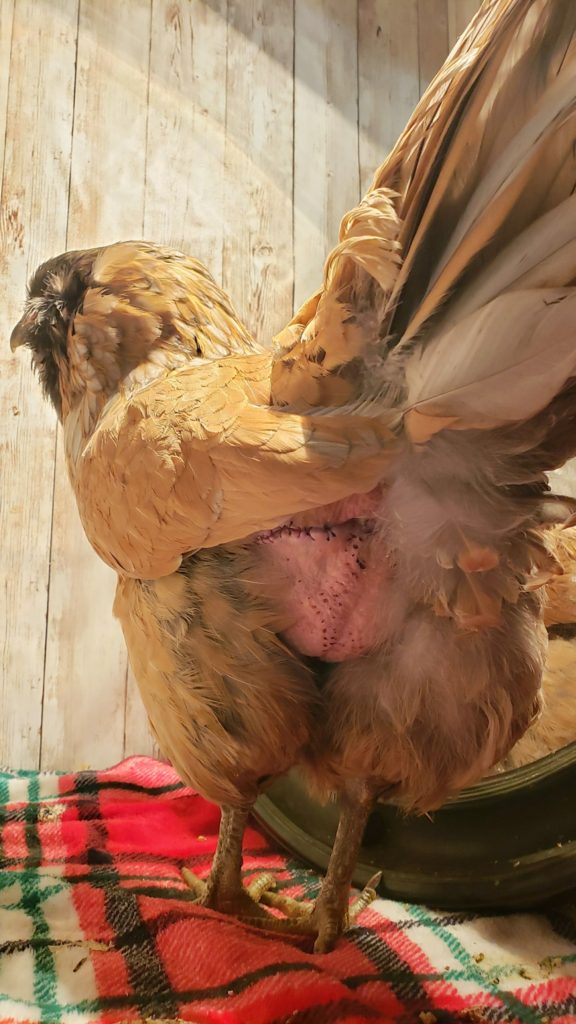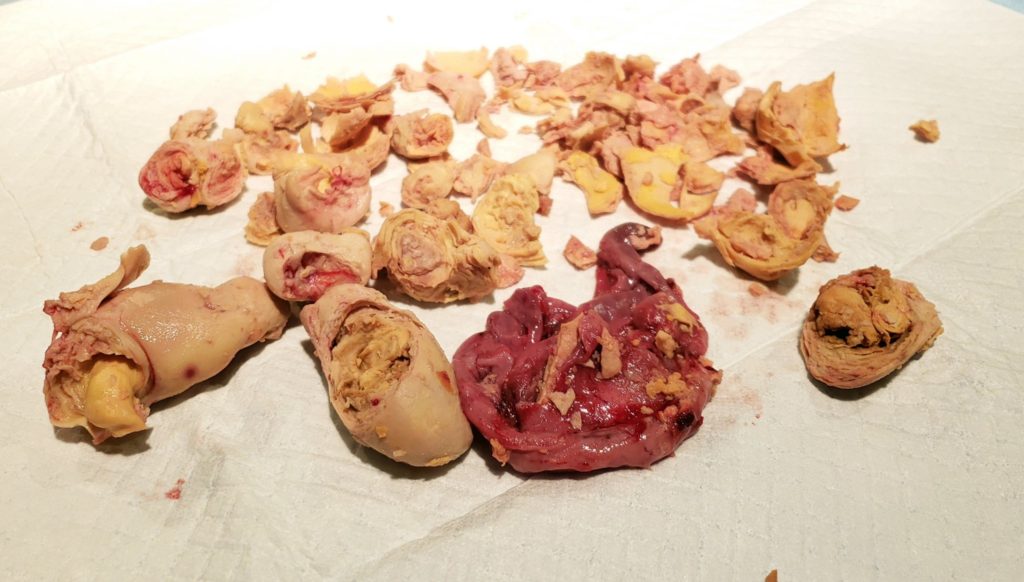With the rise in popularity of keeping backyard chickens, many homesteaders mistakenly believe that they’re not contributing to the problems perpetuated by the meat and egg industries because they treat their chickens with kindness, allowing them to live happy lives doing chicken things outdoors. So where’s the harm?
Most people raising backyard chickens are only interested in keeping hens for egg production. They purchase chicks from hatcheries, where male chicks (for which there is almost no demand) are killed as soon as they’re old enough to sex. Millions of male chicks meet this fate every year, and purchasing chicks from hatcheries directly supports this cruel practice.
Even so, backyard chicken keepers inevitably end up with roosters. Because sexing of chicks is not an exact science, about 10% of sexed chicks are actually male. Some feed stores sell chicks as “straight runs” without explaining that this means the chicks are not sexed, so 50% of them are male. Once they reach 4-5 months of age and start crowing, they often meet a tragic fate: they’re either slaughtered for food, or dumped in the wild where they’re unable to defend themselves against predators. Reasons for getting rid of roosters range from zoning bans on keeping roosters to noise complaints to misunderstood behavior that is labeled as “aggressive”.
Backyard hens suffer, too. All domesticated hens are prone to reproductive diseases and cancers caused by the selective breeding and genetic manipulation that makes them lay an unnatural and biologically unsustainable amount of eggs. One common and often fatal condition is egg yolk peritonitis, where egg material ruptures in the oviduct and rots, slowly poisoning the hen. Ovarian cancer is prevalent in domestic hens. Aside from these serious diseases, laying eggs is a painful process (like a human giving birth) that backyard hens endure nearly every day.

